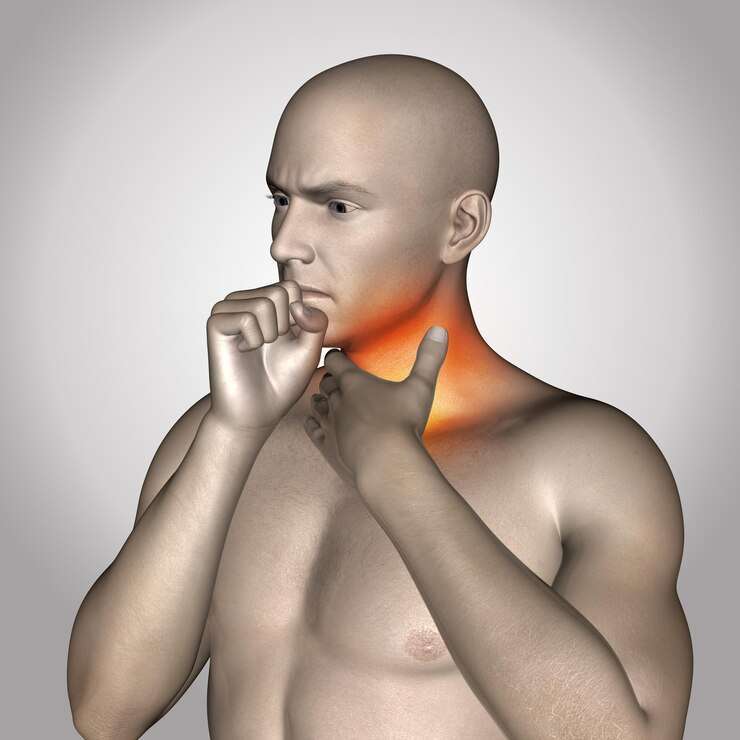Tourette Syndrome
Overview

Tourette Syndrome is a neurodevelopmental disorder that causes repetitive and involuntary movements and vocalizations referred to as tics. These tics can range from mild to severe, and usually appear during childhood. Tourette Syndrome affects various aspects of an individual's daily life, and the complexity of tics highlights the need for a nuanced understanding of the disorder for effective management and support. This brief overview underscores the critical features of Tourette Syndrome, emphasizing the diverse symptoms and early onset of the condition.
Symptoms
Tourette Syndrome (TS) is characterized by a range of motor and vocal tics, often presenting in childhood. Symptoms include:
-Motor Tics:
Simple motor tics involve repetitive movements like eye blinking or head jerking.
Complex motor tics comprise more intricate actions such as touching or hopping.
-Vocal Tics:
Simple vocal tics include sounds like grunting or throat clearing.
Complex vocal tics involve uttering words or phrases out of context.
-Frequency and Intensity:
Tics can vary in frequency and intensity, with fluctuations over time.
-Associated Behaviors:
Individuals may exhibit associated behaviors like obsessive-compulsive tendencies or attention difficulties.
-Social Implications:
TS can impact social interactions, causing challenges in daily life.
Causes & Risks
-Genetic Predisposition:
Tourette Syndrome often runs in families, underscoring a vital genetic component.
-Hereditary Influence:
Tourette Syndrome has a hereditary nature, indicating a familial tendency for the disorder.
-Neurotransmitter Imbalances:
Imbalances in neurotransmitters, particularly dopamine, contribute to the neurological aspects of Tourette Syndrome.
-Environmental Influences:
Prenatal or perinatal complications may contribute to the development of Tourette Syndrome, suggesting environmental factors play a role.
-Complex Interplay:
Tourette Syndrome's etiology involves a complex interplay between genetic, neurological, and environmental factors.
-Holistic Understanding:
Recognizing the interaction of genetic predisposition, neurotransmitter imbalances, and environmental influences provides a holistic perspective for comprehending and managing Tourette Syndrome.
Test & Diagnosis
Diagnosing Tourette Syndrome involves a comprehensive approach:
-Clinical Assessment:
A thorough evaluation of symptoms and medical history is conducted to understand the individual's unique presentation.
-Diagnostic Criteria:
The diagnosis is guided by specific criteria outlined in the DSM-5, ensuring consistency and accuracy in identifying Tourette Syndrome.
-Medical Tests:
Various medical tests exclude other conditions that may mimic tics, helping to differentiate Tourette Syndrome from similar disorders.
-Neurological Examination:
A detailed assessment of reflexes, coordination, and motor skills aids in understanding the neurological aspects associated with Tourette Syndrome.
Treatment
-Behavioral Therapy:
Implementing Comprehensive Behavioral Intervention for Tics (CBIT) imparts skills for effective tic management.
Habit Reversal Training (HRT) facilitates the substitution of tics with inconspicuous movements, promoting self-regulation.
-Medications:
Antipsychotics, prescribed to manage the frequency and intensity of tics, play a crucial role in symptom control.
Alpha-2 Adrenergic Agonists address symptoms, contributing to a comprehensive therapeutic approach.
-Individualized Treatment Plans:
Tailoring interventions based on individual needs ensures personalized and effective treatment strategies.
-Psychosocial Support:
Integration of psychosocial support helps individuals and their families cope with the challenges of Tourette Syndrome, fostering resilience.
-Education and Coping Strategies:
Providing education about Tourette Syndrome and teaching coping strategies enhances understanding and empowers individuals to manage the condition.
-Regular Monitoring and Adjustments:
Continuous monitoring allows for adjustments to treatment plans, ensuring ongoing effectiveness and adapting to the evolving needs of individuals with Tourette Syndrome.
Living With
Living with Tourette Syndrome involves continuous education and awareness initiatives to understand the condition better. Participating in support groups offers individuals with Tourette Syndrome a sense of community and shared experiences. Accommodations in educational or work settings become essential, ensuring a supportive environment that caters to unique needs. Embracing these aspects empowers individuals to navigate daily life with greater resilience and understanding. Education and awareness initiatives dismantle misconceptions, fostering empathy and acceptance. Support groups provide a valuable network, offering emotional reinforcement and shared coping strategies. Implementing accommodations contributes to creating inclusive environments, promoting a more supportive and understanding society for individuals with Tourette Syndrome.
Complications
-Social Challenges:
Tics may lead to social difficulties, impacting relationships and interactions with peers.
-Educational Impact:
Managing symptoms in school settings can be challenging, affecting concentration and academic performance.
-Occupational Considerations:
In the workplace, individuals with Tourette Syndrome may face challenges related to symptom management and workplace dynamics.
-Associated Conditions:
Tourette Syndrome often coexists with conditions like ADHD or OCD, necessitating a comprehensive approach to treatment.
-Psychological Strain:
Coping with tics and potential societal stigma may contribute to psychological stress and emotional challenges.
-Quality of Life:
Balancing social, educational, and occupational aspects can impact the overall quality of life for individuals with Tourette Syndrome.





